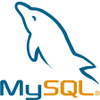Robust software that uses SQL to manage databases
Robust software that uses SQL to manage databases
Pros
- Open-source and cost-effective database solution
- High reliability with Oracle Cloud infrastructure backup
- Variety of editions for different needs and scalability
- Adaptable to a wide range of applications and IT environments
- Excellent customer support with varying levels of service
Cons
- Can be complex for beginners without database knowledge
- Some advanced features require technical expertise to implement
- May require additional resources for optimization in large-scale deployments
Robust Database Management Solution
MySQL stands out as a comprehensive database management system aimed at facilitating a wide array of web-based and data-driven tasks. This open-source platform is engineered to accommodate the versatile needs of various industries, from e-commerce to customer relations. With a suite of tools that are both robust and user-friendly, MySQL ensures that administrators can perform timely updates and modifications with minimal impact on live environments – a critical attribute for businesses requiring high uptime.
Core Functions and Usability
At the heart of MySQL's functionality lies its ability to offer a powerful, yet economical solution for database management. The system provides exceptional performance and reliability, backed by the robust infrastructure of Oracle Cloud. This ensures data integrity and essential backup recovery protocols are in place for business continuity, should any system failures occur. MySQL presents a selection of editions, including the Enterprise Edition and Cluster CGE, to cater to varied requirements and scalability demands. A testament to its efficacy, it's been adopted by over two thousand organizations as their database management backbone.
Advanced Features and Customization
For those needing versatility and customization, MySQL comes in different variations, such as the embedded variant for seamless integration into other software, and the standard edition for those who value straightforwardness and a minimalist approach. One of the key benefits of MySQL is its capacity to integrate with a multitude of other applications and IT environments, making it a flexible option for tech ecosystems of all scales.
User experience also benefits from MySQL's extensive architecture, which supports complex data warehousing, business intelligence, and large-scale applications effortlessly. It prioritizes performance optimization, supporting high-volume transactions and facilitating the swift processing of complex queries.
Support and Subscription Plans
Understanding that technical challenges can arise, MySQL demonstrates commitment to its users by providing top-tier, accessible customer support. A range of support plans ensures that users can select the service level that best matches their operational requirements and budgetary constraints. This, combined with regular updates and patches, ensures that MySQL remains secure against vulnerabilities and keeps up with the latest in database management technologies.
Conclusion
MySQL is a database solution that balances advanced features with user accessibility, offering a toolkit capable of growing alongside a business. With its strong foundation and adaptability, it provides a reliable platform for data management needs. While primarily aimed at users with technical expertise, its intuitive design and support resources attempt to make database management accessible to a broader audience.
Pros
- Open-source and cost-effective database solution
- High reliability with Oracle Cloud infrastructure backup
- Variety of editions for different needs and scalability
- Adaptable to a wide range of applications and IT environments
- Excellent customer support with varying levels of service
Cons
- Can be complex for beginners without database knowledge
- Some advanced features require technical expertise to implement
- May require additional resources for optimization in large-scale deployments




